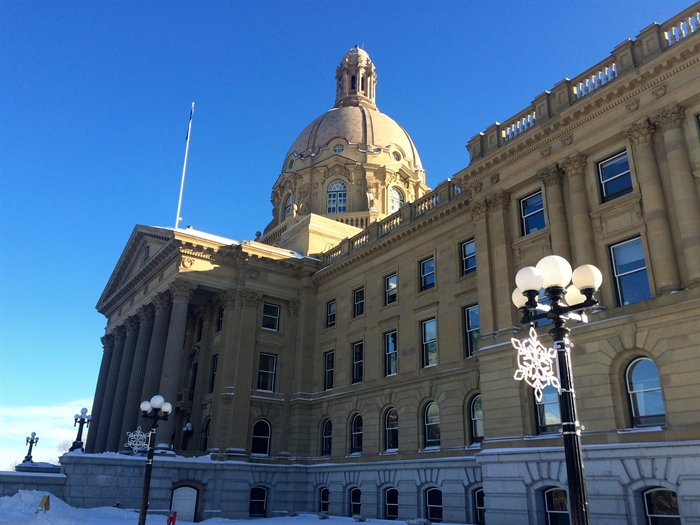There's certainly been no shortage of drama between Alberta's NDP Government and the new opposition, the United Conservative Party.
In many recent legislature debates, the UCP caucus has been criticized by the NDP for their stance on some issues, especially Jason Kenney and the opposition to Bill 24.
The NDP caucus went so far as to publish a tweet on November 5 attacking Kenney, which said "Just a reminder to turn your clocks back one hour this morning. Unless you're Jason Kenney - then turn them forward 30 years."
While conservative supporters and UCP MLAs might see this as a sign of fear and trembling, political scientist Melanee Thomas from the University Calgary has one word for it: Government.
"Westminster style systems, which is what we have, they have adversarialism baked into them. The role of the opposition is to oppose. There typically is going to be disagreements, sometimes pretty profound disagreement between governments and oppositions, it doesn't matter who's in what position."
Thomas said that some in the province might find the bickering between the parties unusual because it hasn't always happened in Alberta.
"In the past we've just had really weak oppositions because we've had this one party dominance for so long. I can see how it doesn't necessarily seem like the status quo for Alberta politics but it really is the status quo for the type of institutions we have."
The former PC Party of Alberta held power for over 40 years, succeeding the Social Credit Party which reigned for 36 years.
When it comes to the "Unite the Right" movement that resulted in the formation of the UCP, Thomas understands the fanfare but said in the end, it's nothing new.
"Typically stemming from Alberta, one of the avenues to address that discontent is to create a new political party. That new party exists with some strengths for a little while and then usually fades and goes back into the kind of general conservative fold. "
Thomas used the examples of the Alberta PC Party, which was formed from the former NWT Liberal-Conservative party, and the Conservative Party of Canada, which was a merger with the Federal Progressive Conservatives and the Canadian Alliance Party.
With this discord being spread by the NDP and UCP, some have wondered if an alternative could emerge. When the Fall Session started, the centrist Alberta Party secured a second seats after NDP MLA Karen MacPherson crossed the floor to join them. That move meant the Alberta Party could apply for official status in the legislature and have room to ask more questions.
Thomas said it's hard to tell whether support will grow for other parties, but it's ultimately good for voters in the future.
"This would be the question about how strong the NDP is in 2019, how they compete against the United Conservative Party, whether or not the Alberta Party can get some kind of footing, whatever happens to the Alberta Liberals. What I am looking for as somebody who studies politics and elections and voting behaviour is to see how Alberta transitions into 2019 and whether or not we move into a context where we have more stable, multi-party competition that's actually competitive."
Thomas does believe that when the next election comes, majority power could likely go to either the NDP or UCP, as they are currently the loudest voices in the Legislature.
Questions, comments or story ideas? Email us at news@discoverairdrie.com





